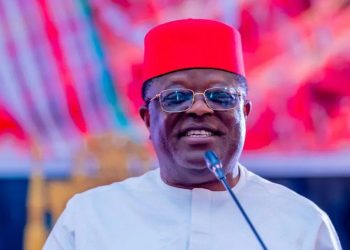A prominent figure in Nigeria’s engineering sector, Abdullahi Hashim, has hailed the recently approved Nigeria-First Procurement Policy as a transformative step toward strengthening the country’s industrial base.
The policy, endorsed by President Bola Ahmed Tinubu and confirmed by the Minister of Information and National Orientation, Mohammed Idris, which mandated all Ministries, Departments, and Agencies (MDAs) to prioritize locally produced goods and services in procurement processes.
Foreign alternatives may only be considered with a waiver from the Bureau of Public Procurement (BPP) when no viable local option exists. Hashim, a member of the Nigerian Society of Engineers (NSE) and the Council for the Regulation of Engineering in Nigeria (COREN), as well as a Harvard University alumnus, described the policy as a bold and strategic move to stimulate local industries, reduce reliance on foreign products, and enhance indigenous engineering capacity.
Hashim, a member of the Nigerian Society of Engineers (NSE) and the Council for the Regulation of Engineering in Nigeria (COREN), as well as a Harvard University alumnus, described the policy as a bold and strategic move to stimulate local industries, reduce reliance on foreign products, and enhance indigenous engineering capacity.
In a statement made available, on Tuesday in Abuja, he commended President Tinubu’s leadership, referring the policy as a cornerstone of the Renewed Hope agenda.
“I commend Mr. President’s courageous leadership in implementing the Nigeria-First Procurement Policy, a palpable initiative that will indelibly shape our nation’s economic trajectory,” Hashim said. “By prioritizing locally made products, you are fostering self-reliance, boosting productivity, and promoting economic growth.”
“By prioritizing locally made products, you are fostering self-reliance, boosting productivity, and promoting economic growth.”
The policy is expected to drive job creation, improve technical expertise, and strengthen Nigeria’s industrial framework.
Hashim highlighted its potential to boost business confidence, encourage investment in local products, and enhance entrepreneurial innovation. “This visionary policy will empower our economy, create jobs, and stimulate innovation,” he noted, adding that it aligns with global best practices for sustainable development and reduces Nigeria’s carbon footprint.
“This visionary policy will empower our economy, create jobs, and stimulate innovation,” he noted, adding that it aligns with global best practices for sustainable development and reduces Nigeria’s carbon footprint.
Furthermore, Hashim, also emphasized the policy’s role in promoting economic sovereignty and human liberation by reducing dependence on imported goods.
“By breaking free from foreign importation, we build liberation and promote self-determination,” he said, underscoring its far-reaching impact on sustainable development. Urging stakeholders, including the private sector and government institutions, to ensure full compliance, Hashim called for collective action to realize the policy’s transformative potential.
Urging stakeholders, including the private sector and government institutions, to ensure full compliance, Hashim called for collective action to realize the policy’s transformative potential.
“We celebrate Mr. President’s commitment to nation-building and look forward to the profound impact of this policy on our economy and society,” he concluded.
The Nigeria-First Procurement Policy is poised to reshape the country’s economic landscape, fostering resilience and positioning Nigerian talent and innovation at the forefront of national development.
Hashim: Nigeria-First Procurement Policy to stimulate local industries
Please login to join discussion











